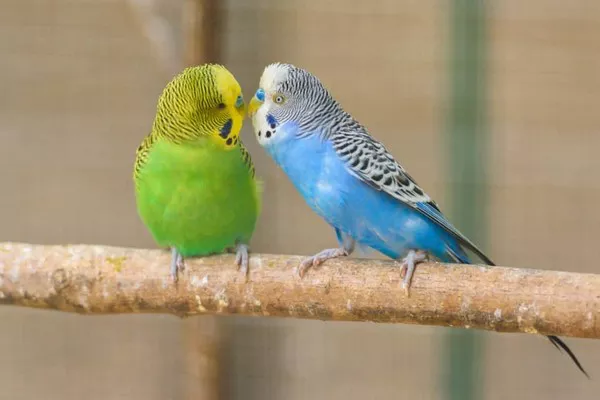African Gray Parrots are renowned for their intelligence, charming personalities, and striking plumage. As responsible caretakers of these magnificent birds, it is crucial to understand their dietary requirements to ensure their well-being. While there is a wide array of foods that can be included in an African Gray Parrot‘s diet, it is equally important to be aware of what they cannot eat. This article delves into the dietary restrictions of African Gray Parrots, shedding light on the foods that should be avoided to promote their health and longevity.
1. Overview of African Gray Parrots’ Diet
Before delving into what African Gray Parrots can’t eat, let’s establish a foundation of their dietary needs. These birds thrive on a diverse and balanced diet that includes high-quality pellets, fresh fruits, and vegetables. Offering a variety of foods ensures they receive essential nutrients such as vitamins, minerals, and protein. However, it’s equally essential to be cautious about certain foods that can be harmful to these intelligent creatures.
2. Chocolate: A Sweet Menace for African Gray Parrots
African Gray Parrots are susceptible to theobromine, a substance found in chocolate that can be toxic to birds. Consumption of even small amounts of chocolate can lead to severe health issues, affecting their cardiovascular and nervous systems. To safeguard the well-being of your African Gray Parrot, it’s imperative to keep all chocolate-containing items, including cocoa-based treats, out of their reach.
3. Avocado: A Potential Hazard for African Gray Parrots
While avocados are celebrated for their nutritional value, they pose a threat to African Gray Parrots. Avocado contains a fungicidal toxin called persin, which can be fatal to these birds. Ingesting any part of the avocado, including the fruit, pit, and skin, can lead to respiratory distress and cardiac issues in African Gray Parrots. Hence, it is advised to completely exclude avocados from their diet.
4. Salty Foods: A Sodium Sensitivity in African Gray Parrots
African Gray Parrots are sensitive to high levels of sodium, making salty foods unsuitable for their consumption. Salted snacks, processed foods, and excessively salty treats can lead to health problems such as kidney dysfunction and dehydration in these birds. Caretakers should prioritize offering low-sodium alternatives to safeguard the renal health of African Gray Parrots.
5. Alcohol and Caffeine: No Place in an African Gray Parrot’s Diet
African Gray Parrots lack the necessary enzymes to metabolize alcohol and caffeine effectively. These substances can have severe repercussions on their central nervous system, leading to tremors, hyperactivity, and, in extreme cases, organ failure. To ensure the well-being of these intelligent birds, it is imperative to keep them away from any foods or beverages containing alcohol or caffeine.
6. Seeds: A Delicate Balance for African Gray Parrots
While seeds are often a part of the diet for many parrot species, an excessive reliance on seeds can be detrimental to African Gray Parrots. Seeds are high in fat and lack the essential nutrients required for their overall health. Caretakers should aim for a balanced diet that includes a variety of fresh foods, pellets, and seeds in moderation to prevent nutritional deficiencies.
7. High-Fat Foods: Moderation is Key for African Gray Parrots
African Gray Parrots are prone to obesity, and an excessive intake of high-fat foods can contribute to this issue. Foods such as nuts and oily seeds should be offered sparingly to avoid weight-related health concerns. A balanced diet that prioritizes fruits, vegetables, and lean protein sources is crucial for maintaining the optimal weight of these birds.
8. Dairy Products: A Cautionary Tale for African Gray Parrots
Dairy products, such as milk and cheese, can be challenging for African Gray Parrots to digest. Lactose intolerance is common among parrots, and the ingestion of dairy can lead to digestive discomfort and diarrhea. To ensure proper digestion and prevent gastrointestinal issues, caretakers should refrain from including dairy products in the diet of African Gray Parrots.
See Also: Intelligence Tests – African gray parrot
9. High-Sugar Foods: Diabetic Dangers for African Gray Parrots
African Gray Parrots, like many other parrot species, are susceptible to diabetes. Excessive consumption of sugary foods, including candies, sweetened cereals, and sugary fruits, can contribute to the development of diabetes in these birds. Caretakers should opt for low-sugar alternatives and prioritize a diet rich in complex carbohydrates and natural sugars from fresh fruits.
10. Medicinal Plants: Cautionary Considerations for African Gray Parrots
While some plants offer medicinal benefits, not all are safe for African Gray Parrots. Caretakers should exercise caution when introducing new plants to the bird’s environment, as certain plants can be toxic. Research and consultation with avian veterinarians are essential to ensure that the plants within the parrot’s reach are harmless and do not pose a threat to their health.
In conclusion, understanding what African Gray Parrots can’t eat is as crucial as knowing what they can eat to provide optimal care for these intelligent and captivating birds. By being mindful of their dietary restrictions, caretakers can create a nutritionally balanced diet that promotes their overall health, longevity, and happiness. Regular consultation with avian veterinarians and continuous education on avian nutrition will contribute to the well-being of African Gray Parrots under your care.
Related Topics:
What can i feed my african grey?
How much is an african grey parrot worth?
How many years do african grey parrots live?























